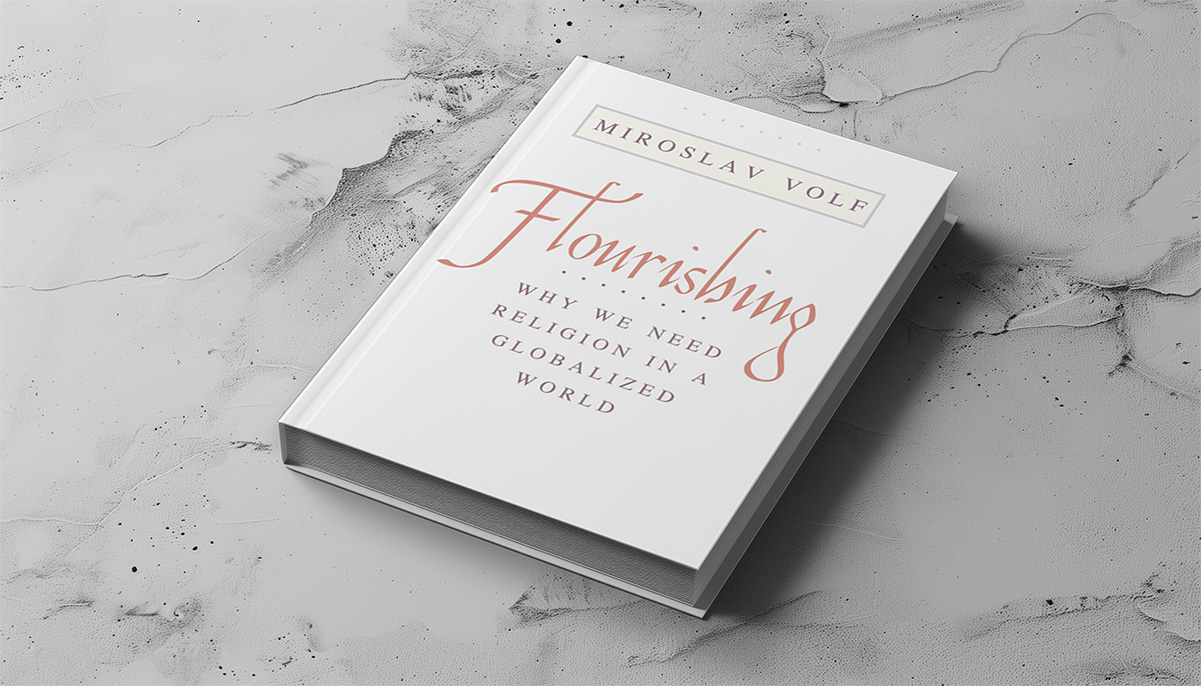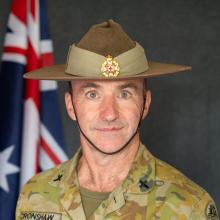The influence of religion at its worst on violence, and its best on peacemaking, is relevant to military leaders today.
Several years ago, the day I finished my original reading and review of Flourishing, Father Jacques Hamel was killed by two Islamic State “soldiers” after invading Mass at the foot of his church altar in south France. Among those who spoke out against the attack were the priest’s friend Mohammed Karabila, who had served on a local interfaith committee with him, from the local mosque which was on land gifted to them by the Catholic parish. Thus in the midst of a terrorist act which showed religion in a globalized world at its worst, there were signs of local grassroots cooperation pointing to a hopeful future. At local, national and global levels, the world is desperate for leadership and pathways to navigate the challenges of globalization, especially disparities of wealth, our ecological limits and religiously-motivated intolerance.
These issues have only become more important to me, given the directions and pressures of the current global scene and given my interest now in the military’s religious leader engagement.
I have still got a lot a lot I can learn from Miroslav Volf who is the Founder and Director of the Yale Center for Faith and Culture and Henry B. Wright Professor of Theology at Yale University Divinity School. Having grown up in Yugoslavia in a Pentecostal family, he has long known the clash of rival visions for global politics and religious motivation. Drawing from his upbringing and the theological mentoring of Jurgan Moltmann’s political theology, and having recently lived through 9/11 and the Global Financial Crisis, Volf articulates strong convictions that faith and politics are distinct systems, and yet that authentic faith always is always engaged to relieve suffering and oppose injustice, violence and environmental degradation. Religions have a valuable contribution and it robs the world if they are quarantined to the private domain. Volf has published influential books on Trinitarian theology, reconciliation, public theology and Islam. Flourishing continues his interest with inter-faith relations and global issues, and draws largely on teaching a class on globalization and faith with Tony Blair, after he finished serving as Prime Minister of the UK and converted to Catholicism.
The book offers an historical overview of how religions and globalization have interacted, and points in positive directions for the future. Globalization and world religions both offer visions for flourishing and living life well. Yet they also both can malfunction. Refusing to countenance complete praise or critique of either, Volf shows how all religions have initiated violence and all have worked for peace, and discusses how globalization brings benefits and tensions. He proposes evaluating globalization on how its manifestations impede or make possible love of God and neighbour; e.g., whether trade agreements or environmental regulation or the production of consumer products such as IPhones are attentive to the most vulnerable, or treats them with contempt. He explores how religions can foster respect and reconciliation, and proposes that even exclusive versions of world religions, including for example the Religious Right in the United States, can foster political pluralism and promote religious freedom. He deals in depth with religious coercion and disputes about apostasy, conversion and blasphemy. These are essential discussions in a world where religious intolerance distorts neighbourliness locally and threatens security globally.
What I most learned from Volf in Flourishing is his posture of belief and respect. He writes unapologetically as a Christian, suggesting a “view from nowhere” is impossible and without advocating believers of any religion abandon their convictions. Yet he seeks to also draw on the teachings of other religions and invite people of other faiths to engage with these issues and our partly overlapping and partly competing visions of flourishing. His “rules of respect” are to respect any other religion by honouring its integrity, critically engaging its truth claims and recognizing its positive moral effects. The respect and dialogue and engaged religious activism that Volf appeals for is essential in a globalized world. The world needs resources for peace, reconciliation, contentment and common care for the planet. Religions point people beyond living by “bread alone” and striving for more worldly goods. Volf concludes hopefully: “the right kind of love for the right kind of God bathes our world in the light of transcendent glory and turns it into a theatre of joy.”
Volf alludes to the need for others, including from other world religions and indigenous voices and local religions, to also contribute on these topics. Globally and locally we need more conversation and resources, and constructive religious leadership, on how to respond to the challenges of globalization. Flourishing is valuable background reading for anyone wanting to understand the history and contributions of globalization and religions – and their interrelated influence – on visions for the good life.
Notes:
Darren Cronshaw is a Chaplain in the Australian Army (part-time), Pastor of AuburnLife Baptist Church, and Research Coordinator and Professor of Missional Leadership for Australian College of Ministries (Sydney College of Divinity) and Stirling College (University of Divinity). He also serves as honorary chaplain at Swinburne Universitywhere he has been involved in hostingFinding Common Groundinter-belief dialogue for international and domestic students.
An earlier version of this review was originally published in International Journal of Practical Theology 22:1 (2018), 129-130. The book’s publisher details are Miroslav Volf, Flourishing: Why We Need Religion in a Globalized World (New Haven: Yale University Press, 2015).
The views expressed in this article are those of the author and do not necessarily reflect the position of the Australian Army, the Department of Defence or the Australian Government.
Please let us know if you have discovered an issue with the content on this page.
Comments
Start the conversation by sharing your thoughts! Please login to comment. If you don't yet have an account registration is quick and easy.

